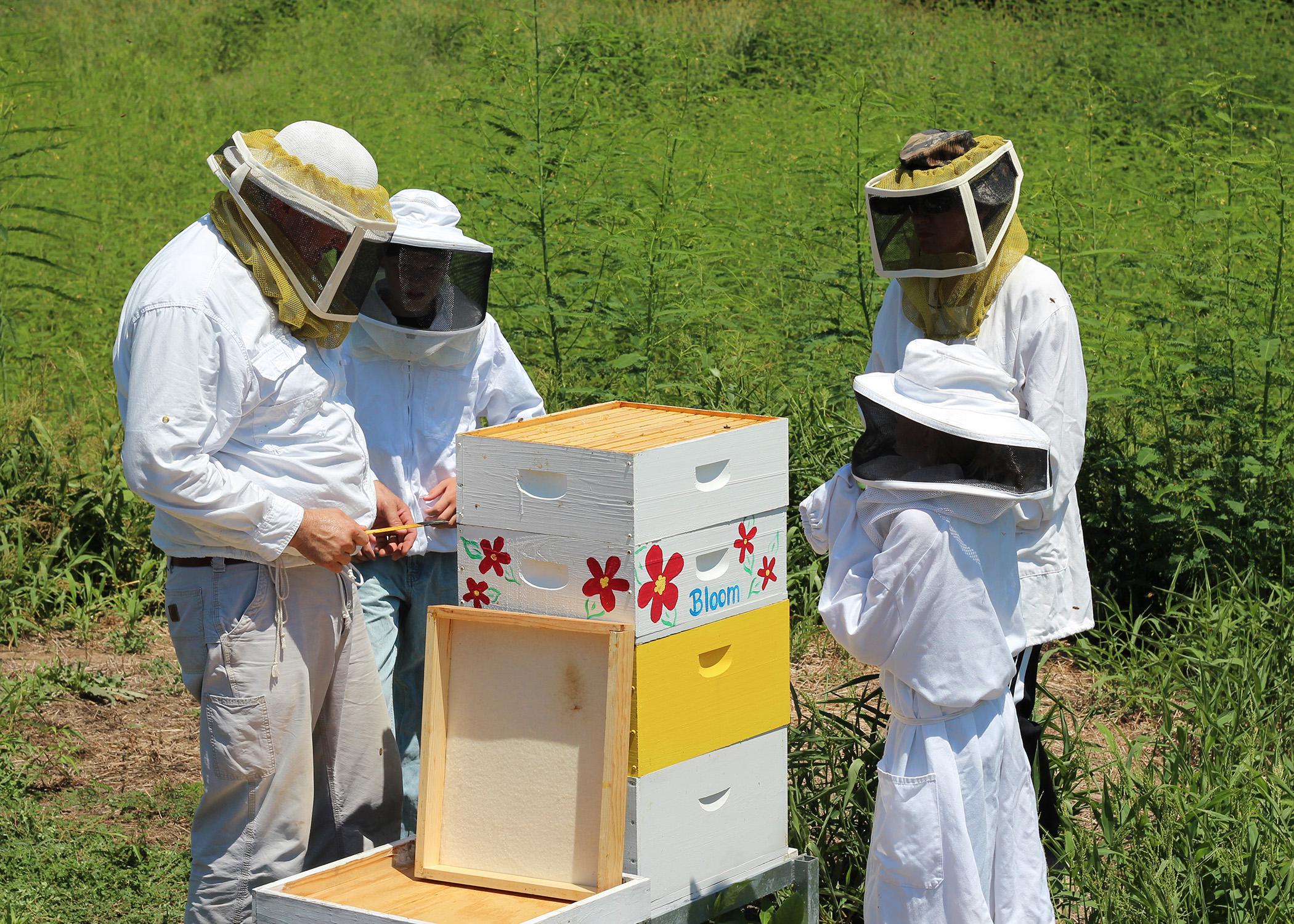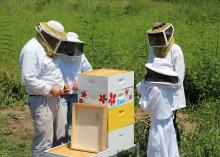Information Possibly Outdated
The information presented on this page was originally released on March 6, 2020. It may not be outdated, but please search our site for more current information. If you plan to quote or reference this information in a publication, please check with the Extension specialist or author before proceeding.
Bees can thrive in both city and countryside
STARKVILLE, Miss. -- Believe it or not, urban landscapes can provide enough plant diversity to sustain honeybee colonies, making beekeeping a suitable hobby for both city and country dwellers.
Jeff Harris, beekeeping specialist with the Mississippi State University Extension Service, said both locales have their pros and cons when it comes to growing healthy honeybee hives.
“Many urban landscapes contain ornamentals and other flowering plants that provide a better and more diverse diet than monoculture crops,” Harris said. “Just like humans, bees are healthier when their food comes from many different sources, not just cheeseburgers -- or in the bees’ case, 3,000 acres of corn.”
Beekeeping should begin with research.
“Before getting started, potential beekeepers need to ask about local and state laws governing the number of colonies an individual can have,” Harris said. “Some municipalities may restrict the number of colonies that can be kept in a suburban yard. Some states have laws that govern the registration of hives. There are no universal rules.”
Harris advised potential beekeepers to ask more experienced local beekeepers for help in placing new hives, identifying food plants that bloom March through October, and figuring out if the density of food plants available will support the hives. He also stressed the need for a water supply, such as drips, ornamental garden ponds or other water features that allow bees to drink without drowning.
“Lily pads or shallow dishes with gravel or sand give bees something to stand upon while they drink, which helps prevent drowning,” he said. “If an urban beekeeper does not supply water close to the hives, the bees will find the next closest source, and real problems ensue if that source is a neighbor’s swimming pool.”
Beekeeping in any environment is not without its challenges. In some cities, beekeepers place their colonies on rooftops or balconies high above the people on sidewalks below because of a lack of space. Even then, greater numbers of people mean an increased likelihood for interactions between bees and humans.
While city bees are not typically exposed to agricultural chemicals, many city dwellers use chemicals for gardening and lawn maintenance. City bees are also more at risk for traffic mortality, so placement of hives should consider local vehicle traffic.
Despite the potential issues, beekeeping is booming, and not just because people love honey.
“Some beekeepers desire to get back to nature or help pollinators that seem to be in declining numbers. Some want to provide pollinators for gardens,” Harris said. “Beekeeping is a complex activity, but it is also a family friendly activity. The family that keeps bees together stays together and has fresh honey on their biscuits.”
For 12 years, Tammy Carlisle has kept bees on the outskirts of Starkville. She owns a small farm with fruit and pecan orchards, along with raised beds for growing herbs and vegetables.
“I started keeping bees because everything works together,” Carlisle said. “Bees do a valuable job, and I became a beekeeper to continue that cycle, to be a steward for the bees and give them a safe place.”
Carlisle stressed the importance of education, reading books, attending Extension courses and learning through trial and error.
“If I were going to give advice, I would tell people not to go into beekeeping with too many expectations,” she said. “Be patient, let them do what they do. Don’t expect massive quantities of honey and a fast process. Be considerate of your neighbors; you don’t want to harm the bees but you don’t want to harm people either. You have a responsibility to the bees and the community.”
Carlisle harvests each hive separately to maintain the different varieties of honey. She usually gives the honey as gifts rather than offering it for sale, but that may change when she opens an on-farm market this spring to sell locally grown produce.
“Being a beekeeper is a gift to me,” she said. “It’s not an easy thing to do; it’s expensive. it’s a lot of work, but it’s worth it. In turn, I give my honey as gifts. It’s a karma thing.”
For publications and information about upcoming beekeeping courses, visit the MSU Extension Service website or contact the local Extension office.




